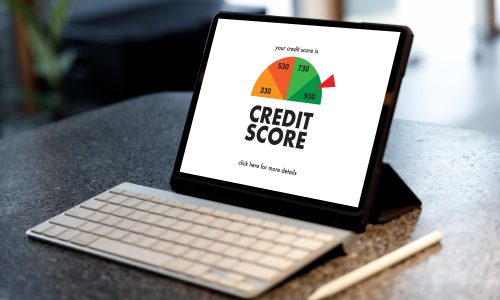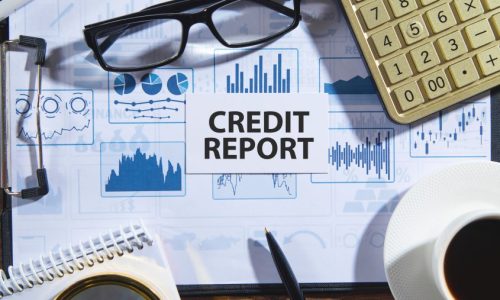Understanding Your Credit Score

Your credit score is both an indication of and a means of bettering your financial situation. You may be aware that having “good credit” is necessary in order to get a mortgage or auto loan, but you may not be aware of the many other areas in which strong credit may be advantageous. A good credit history, for instance, may be a huge selling point to prospective employers who may request a copy of your credit report. Insurance premium discounts are also possible with good credit.
The components of a credit score and the actions one might take to improve one’s credit rating are not common knowledge. Learn what variables have the most impact on your credit score and what you can do to improve your credit standing.
So, What Exactly Is A Credit Score And How Does It Work?
A credit score is a three-digit number that summarizes your creditworthiness. Lenders may use this score to predict whether or not you will be late on your payments over the next two years.
The FICO credit score is the most extensively utilized and well-known scoring model among the numerous available. Over 90% of the largest lenders use FICO scores to help customers get approved for loans and credit cards. You may also be familiar with the VantageScore, another widely used scoring model; there are really multiple variants of the VantageScore. The UltraFICO scoring methodology has just recently been created to assist customers in raising their credit scores.
There are three possible FICO credit scores, which measure your creditworthiness. This is because your credit score is calculated differently by each of the three credit reporting agencies (Experian, Equifax, and TransUnion) based on their own internal methodology and the data available in your credit reports.
There is a wide range of possible FICO scores, from 300 to 850, with higher scores representing less of a risk to the lender.
Components of Credit Ratings
If you understand the factors that go into determining your credit score, you may take steps to raise your score. Each credit reporting agency takes into account the following components of your FICO score:
Payment History (35%)
You can easily understand why your payment history is the single most influential component in determining your FICO score. Whether or not you have a history of timely payments on your obligations is an important factor for lenders to consider when deciding whether or not to give credit to you.
Debt Payments (30%)
A credit bureau will also look at your credit utilization ratio, which is the percentage of your available credit that you are currently using. This is predicated on the assumption that debtors with a high total debt load may be overextended. On the other hand, if your total debts are modest in comparison to your income, your creditors will probably see you as less of a danger to default.
Credit History Length (15%)
Longer credit histories are preferred, so the longer you’ve been using credit, the better. Credit bureaus use the age of your accounts, the age of individual accounts, and the length of time since you last used certain accounts when calculating this score, as detailed on myFICO.com.
New Credit (10%)
Credit reporting agencies also consider how many new accounts you’ve created within a short time period. Opening a large number of accounts quickly might raise red flags about your creditworthiness.
Combination Of Credit (10%)
Credit mix, or the combination of multiple forms of credit you hold (revolving, retail, and instalment), is the last factor credit bureaus consider when determining your creditworthiness. It might help if you have a variety of credit accounts that are all in excellent status.
Credit Score: How Can You Get One?
When calculating your credit score, the three credit agencies will look at your credit record and take into account how well you do in the aforementioned five categories.
However, it’s worthwhile to note that the three credit agencies don’t always report the same number for your credit score. This is because your account information may be reported differently by each credit bureau. Therefore, a disparity in credit reports is not always indicative of financial trouble.
Summing Up: A credit report is a record of your financial activities that is maintained by the three major credit reporting agencies. It includes details such as your payment history, the number of times you’ve applied for credit, any public records that have been opened on your file, and other personal data.
So, What Exactly Defines An Excellent Credit Rating?
You need to aim high if excellent credit is something you value. We know that FICO scores may vary anywhere from 300 to 850; here’s what that means in practice:
Excellent credit (800+): This number is far higher than the norm and indicates to lenders that you pose little to no risk as an applicant for financing.
Above-average (740-799): A very strong credit score demonstrates an exceptionally low risk profile.
Lenders often won’t turn you down if your credit score falls between 670 and 739, since this range is well around the national average.
Uneven: (580 to 669) Credit ratings in the fair range indicate that you offer some risk to lenders. Credit cards and loans may still be accessible even with a moderate score.
Credit Score: 579 and Below – A credit score of 579 indicates that lending you money might be problematic since you have made credit errors in the past.
What Factors Impact Your Credit Score?
Your credit score is based on how responsibly you utilize credit. The primary factors in calculating your credit score are on-time bill payment and total debt, but the amount of new credit you have and the length of time you’ve had particular accounts are also important.
You should be aware, however, that inaccuracies on your credit report may have a negative effect on your score. Checking your credit reports at least a few times a year will help ensure that they are accurate, since variable information is submitted to each credit agency and your credit score may be different with each. You may do this for free once per year with each of the three major credit reporting agencies by visiting AnnualCreditReport.com.
Advice On How To Keep And Raise Your Credit Rating
You should make prudent use of any available credit to maintain your credit rating in good standing. Specifically, the following guidelines might be useful:
- Don’t be late with your payments. You should never be late on a payment since it is the single largest influence in determining your FICO score. If you can’t avoid it, set up automatic bill payments or alarms to alert you when obligations are due.
- Never use more than 30 percent of your available credit at once. For optimal benefits, most experts advise maintaining your credit use at 30 percent or below. To put it another way, your debt-to-credit ratio should be no more than $3,000 for every $10,000 in accessible credit.
- Avoid opening a large number of new accounts all at once. Opening a large number of accounts, whether credit cards or other sorts of loans, at once may have a negative effect on your credit score.
- Don’t close down your previous credit accounts. It’s a good idea to have active yet dormant accounts. You may lengthen the average duration of your credit history by using these older accounts.
- Keep close tabs on your credit reports. We have previously discussed the need of checking your credit reports regularly for inaccuracies. If you discover inaccurate information on your credit reports, be careful to contest it.
Methods For Obtaining One’s Credit Score
While AnnualCreditReport.com does provide free copies of credit reports, the scores themselves are not included. Fortunately, there are a number of options for checking your credit score without incurring any costs.
A good illustration of this is the fact that a free FICO score can be found on the monthly credit card statement of many of the best rewards credit cards. Customers and non-customers alike may get a TransUnion credit score preview via Capital One’s CreditWise and Chase’s Credit Journey, respectively.
In Conclusion
While it’s true that external variables might make it difficult to create excellent credit, you may actually have more control over your credit score than you realize. If you make your payments on time or even early, don’t let your balances get too high, and check your credit reports often for mistakes, your credit score should rise quickly.



